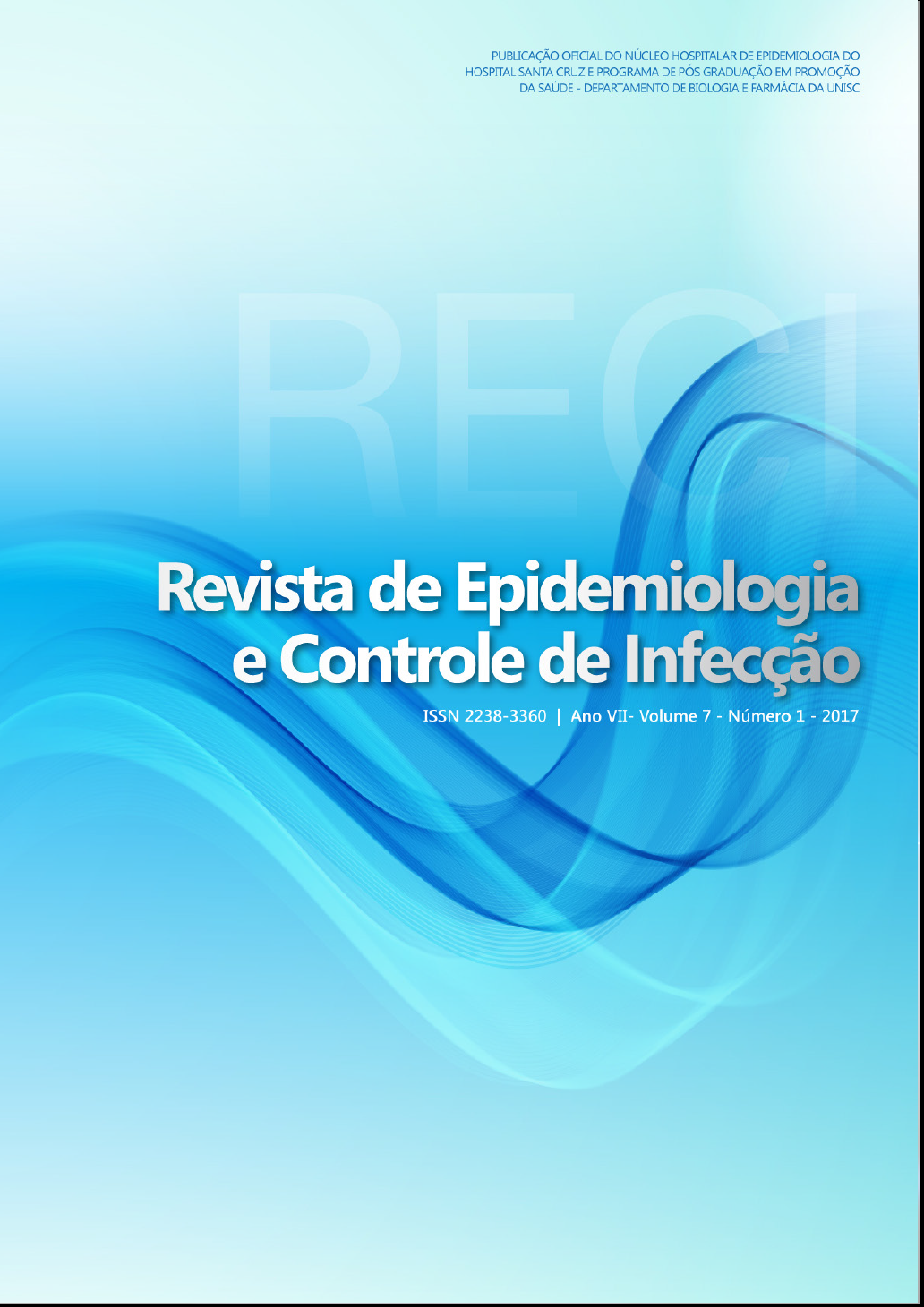Prevalence and Antimicrobial Susceptibility of Uropathogens Isolated from Ambulatorial and Nosocomial Infections at Nova Friburgo, Rio de Janeiro, Brazil.
DOI:
https://doi.org/10.17058/reci.v7i1.7985Abstract
Background and Objectives: Urinary tract infection (UTI) is the second most common infection. UTIs are usually caused by enterobacteria, mainly Escherichia coli. These microorganisms have shown antibiotic resistance to several drugs used to treat UTI in different parts of the world . However, previous studies on regional prevalence and antimicrobial susceptibility have not been published. This work aimed to investigate the prevalence and antimicrobial susceptibility of bacteria associated to UTI of out- and nosocomial patients examined and/or treated in a hospital at Nova Friburgo, Rio de Janeiro , Brasil. Methods: A retrospective study evaluated the prevalence and antimicrobial susceptibility of positive urine cultures isolated from out- and nosocomial patients from July 2010 to June 2014. Results: From 1592 urine cultures from outpatients, 317 were positive (11.37%), while in the hospital setting, from the total of 613 urine samples, 136 (21.55%) were positive . From outpatients, the most prevalent microorganism was Escherichia coli (76.50%) followed by Enterobacter sp. (12.02%) and Proteus sp. (5.46%). In nosocomial UTIs, the most prevalent bacteria were E. coli (65.96%), Proteus sp. (7.80%), and Pseudomonas sp. (7.09%). Most of positive urine cultures were isolated from women (89.13%). The antimicrobial susceptibility reveled that most of E. coli isolated from outpatients, were resistant to ampicillin (45.00%), nalidixic acid (37.14%) and nitrofurantoin (35.71%). For nosocomial isolates, most of E. coli were resistant to ampicillin (56.99%), cephalothin (45.16%), piperaciclin/tazobactam (37.63%) and nitrofurantoin (36.56%). Conclusion: E. coli antimicrobial resistance was observed in most of UTI, independently of patient origin. These data should contribute to improve the selection of adequate antimicrobial treatment forKEYWORDS: Drug Resistance, Microbial. Enterobacteriaceae. Escherichia coli. Urinary Tract Infection both hospital and ambulatorial-acquired UTIs in our community.Downloads
Downloads
Published
How to Cite
Issue
Section
License
The author must state that the paper is original (has not been published previously), not infringing any copyright or other ownership right involving third parties. Once the paper is submitted, the Journal reserves the right to make normative changes, such as spelling and grammar, in order to maintain the language standard, but respecting the author’s style. The published papers become ownership of RECI, considering that all the opinions expressed by the authors are their responsibility. Because we are an open access journal, we allow free use of articles in educational and scientific applications provided the source is cited under the Creative Commons CC-BY license.


